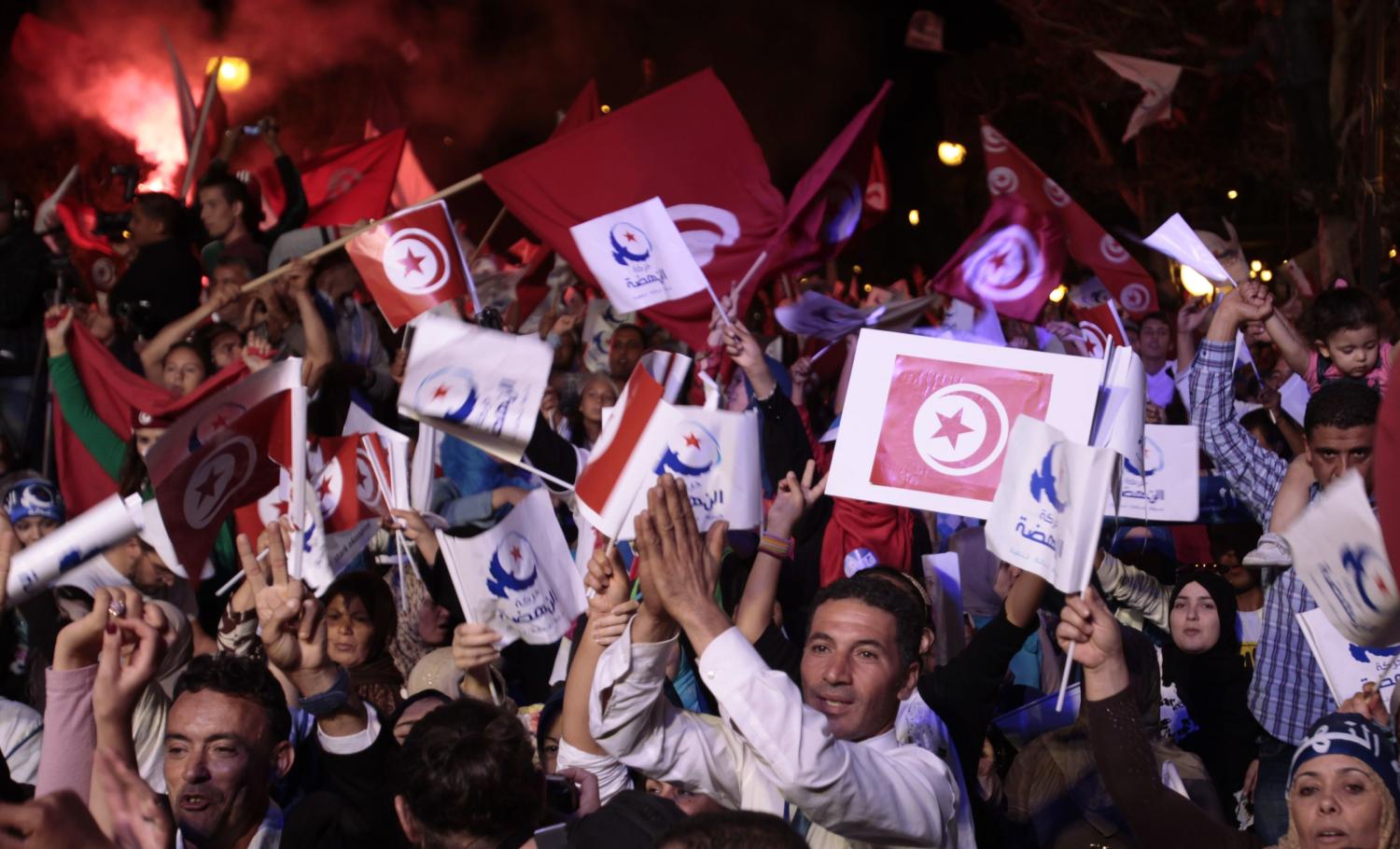Content from the Brookings Doha Center is now archived. In September 2021, after 14 years of impactful partnership, Brookings and the Brookings Doha Center announced that they were ending their affiliation. The Brookings Doha Center is now the Middle East Council on Global Affairs, a separate public policy institution based in Qatar.
In 2010-2011, popular uprisings in North Africa created an unprecedented opening for opposition groups from across the political spectrum to finally take part in governing their respective countries. Of all these actors, Islamist parties were best able to capitalize on the opening, with the Justice and Development Party (PJD), Ennahda, and the Muslim Brotherhood’s Freedom and Justice Party (FJP) winning significant electoral victories in Morocco, Tunisia, and Egypt, respectively.
Seven years later, the PJD has again won a plurality in Morocco’s parliament, Ennahda is a junior partner in Tunisia’s governing coalition, and the Muslim Brotherhood, removed from power by Egypt’s military, is enduring a severe crackdown. While their actions and fates greatly differed, all three groups’ time in government since 2011 shed light on the parties’ stances in various areas. These “gray zones” include their ideologies, commitment to pluralism, and respect for women’s and minority rights.
In this paper, Adel Abdel Ghafar and Bill Hess compare how the PJD, Ennahda, and the FJP behaved during their inaugural experiences in power and aims to assess why they succeeded or failed in governing effectively. The authors argue that the PJD and Ennahda’s pragmatism, flexibility, and ability to collaborate with other political forces enabled them to participate and survive politically in the post-2011 era. In contrast, the FJP frequently acted unilaterally and aggressively sought to remake Egypt’s political system, ultimately resulting in the MB’s ejection from it. The national context each party operated within, and the inherent challenges of massive political transitions, were also major factors.
Key Recommendations:
1- Judge Islamists by their actions, not their words
Like plenty of other political actors, Islamist parties vary their rhetoric depending on factors such as the context and audience. It can be tempting to latch onto and draw conclusions from particular sound bites, whether positive or negative. Yet policymakers attempting to determine whether to engage with specific Islamist parties and permit them to participate in a country’s politics should withhold final judgment until such parties begin to take concrete action. Among the most important actions are coalition building and ceding power peacefully.
2- Exclusion should be a last resort
Incumbent regimes in the MENA region frequently ban opposition forces, denying legitimate actors access to the political process and even applying terrorism labels to their own advantage. These exclusionary tactics are often applied to Islamist groups, sometimes solely because they are Islamist. Yet excluding them does not ensure that such groups—which are often hugely influential—will never pose a challenge to existing regimes or gain political power. Banning Islamist groups from politics does, however, make it more likely that should their fortunes change, they will be underprepared to govern consensually and effectively, to the detriment of their countries. Moreover, denying political openings to Islamist actors strengthens the arguments of extremists who point to violence as the only way to effect change. In future transitional settings, the exclusion of Islamists from the political process would put the legitimacy and durability of any new framework and government into question. As many Islamist groups are more democratic and inclusionary than their secular counterparts, excluding them would perpetuate a double standard.
3- Strengthen civil society, from inside and out
Policymakers who want to see Islamist parties successfully integrated into their countries’ political systems should invest in those countries’ civil societies. A vibrant domestic civil society can serve two important functions in scenarios where Islamist parties are entering governing structures. First, as in Tunisia and Egypt, civil society organizations can serve as counterbalances to Islamist parties that attempt to overreach. It was lawyers in Egypt who successfully challenged the first Constituent Assembly’s legality, getting it disbanded. In Tunisia, the prominent labor union was able to stand up to Ennahda when the country’s other political parties were too fragmented and disorganized to do so effectively. Second, international civil society organizations can contribute to parties governing more effectively and more pluralistic political scenes.
The Brookings Institution is committed to quality, independence, and impact.
We are supported by a diverse array of funders. In line with our values and policies, each Brookings publication represents the sole views of its author(s).





